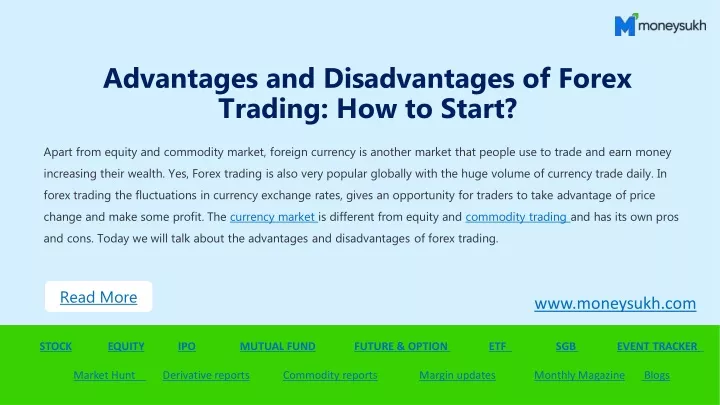The realm of financial markets offers a plethora of opportunities for investors, traders, and speculators seeking to optimize their portfolios and generate substantial returns. Among the diverse range of financial instruments available, futures and options have garnered significant traction due to their distinct characteristics and unique advantages. However, it is imperative to acknowledge that trading in these markets also entails potential drawbacks. This comprehensive article will delve into the intricacies of futures and options trading, meticulously examining their respective advantages and disadvantages to equip readers with a well-rounded understanding of these compelling financial tools.

Image: www.slideserve.com
Futures Trading
Futures contracts are standardized agreements to buy or sell a specified quantity of an underlying asset, such as commodities, currencies, or stocks, at a predetermined price on a future date. The allure of futures trading lies in its inherent advantages. Firstly, futures provide investors with a potent tool for hedging against price fluctuations in the underlying asset. By entering into a futures contract, traders can effectively lock in a price for future delivery, thereby mitigating the risk of adverse price movements. Secondly, futures offer ample liquidity, ensuring that traders can enter and exit positions swiftly without encountering significant market impact.
Yet, futures trading is not devoid of potential pitfalls. One of the primary disadvantages is the substantial capital required to trade futures contracts. Due to the leveraged nature of futures, traders are obligated to maintain sufficient margin accounts to cover potential losses. This can limit accessibility for small-scale traders with limited financial resources. Another drawback is the possibility of substantial losses. Futures contracts are inherently volatile, and rapid price movements can lead to significant financial setbacks, especially for inexperienced traders.
Options Trading
Options, on the other hand, are financial instruments that provide the holder with the right, but not the obligation, to buy or sell an underlying asset at a specified price on or before a certain date. Options trading offers a distinct set of advantages. Foremost, options provide flexibility and customization, allowing traders to tailor their strategies to specific market conditions and risk appetites. Options offer limited risk compared to futures, as traders are only liable for the premium paid for the contract. This makes options an attractive option for risk-averse investors.
Despite their advantages, options trading also has potential disadvantages. One of the main drawbacks is the time decay associated with options. As an option approaches its expiration date, its value diminishes, which can limit profit potential and increase the risk of losses. Additionally, options trading can be complex, requiring a comprehensive understanding of market dynamics and option-pricing models. This complexity can deter novice traders and necessitate professional guidance.
Comparative Analysis
To make informed decisions, it is crucial to draw comparisons between futures and options trading. Futures offer the benefit of hedging and leverage, while options provide flexibility and limited risk. However, futures require substantial capital and can lead to significant losses, whereas options involve time decay and complexity. The optimal choice between futures and options hinges on an individual’s risk tolerance, investment objectives, and trading experience.

Image: nnn.ng
Advantages And Disadvantages Of Trading In Futures And Options
Conclusion
Futures and options represent powerful financial tools that empower traders to access a diverse range of opportunities in the financial markets. However, a thorough understanding of their respective advantages and disadvantages is paramount to navigate these markets effectively. Futures provide hedging and leverage but require substantial capital and carry the risk of large losses. Options offer flexibility and limited risk but involve time decay and complexity. By carefully weighing these factors and aligning their trading strategies with their risk tolerance and financial goals, traders can harness the potential of futures and options to achieve optimal investment outcomes.






